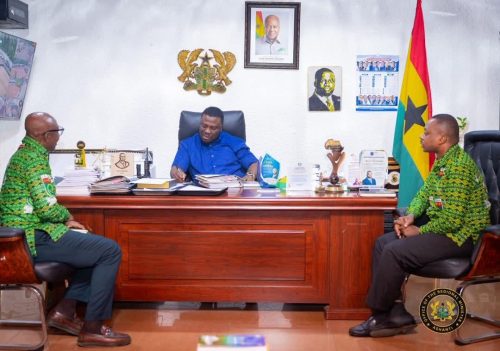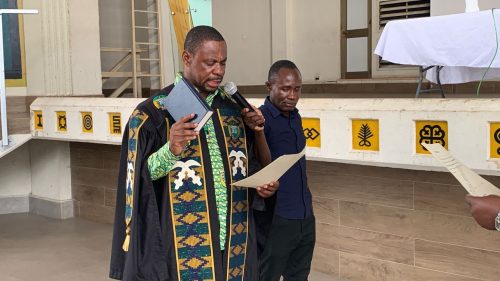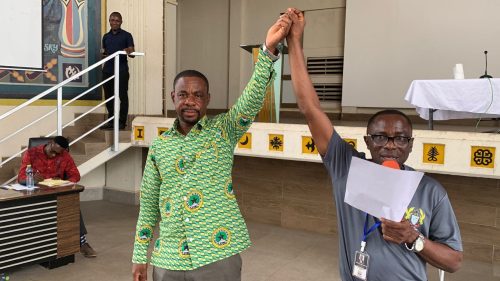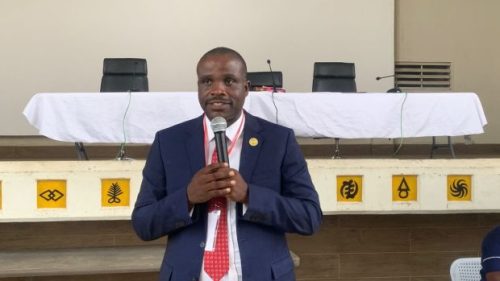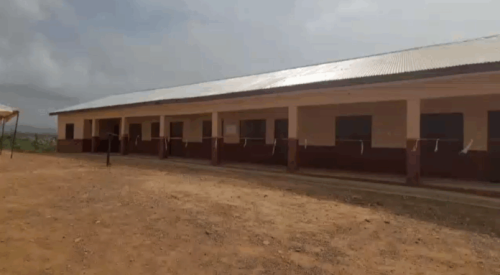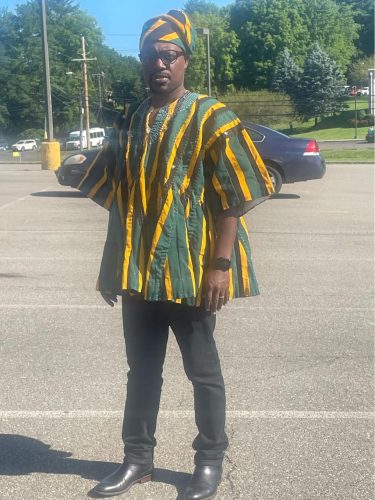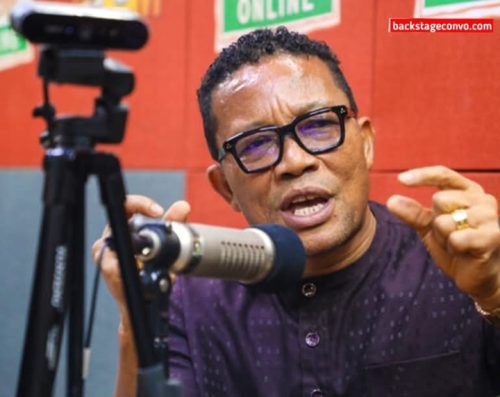
In Old Tafo Zongo, a Muslim dominated community in the Ashanti region, where deeply ingrained religious beliefs have always shaped people’s actions, one man’s courageous stand against an oppressive system has made headlines and raised critical questions about human rights, justice, and equality.

A 30-year-old Muslim man, Abdul Khaliq Mohammed Zainudeen, has become an unlikely hero after stepping up to protect two young alleged lesbians who faced severe punishment and public humiliation for their love.
His actions—driven by commitment to human dignity and equality—have placed him in grave danger, but also brought to light the urgent need for compassion and justice in a world too often divided by prejudice and fear.
According to reliable reports, on January 7, 2023, the situation took a harrowing turn when these two young Muslim ladies were allegedly caught in a same-sex relationship.
The sources say they were humiliated and persecuted, and the community elders decided that they should be tortured as an example.
At a meeting to decide the women’s fate on January 12, 2023, Abdul Khaliq, this online portal gathered, said he couldn’t contain his anger. Abdul Khaliq reportedly asked if there was anyone in the room who had never sinned. Why should they judge the two ladies?
“Who were they to decide Allah’s will?” One of the community members told this portal, adding that Abdul Khaliq’s words caused uproar, and he was swiftly expelled from the gathering.
“He was labeled a ‘blasphemer,’ a ‘lesbian supporter,’ and from then on, things went downhill. It was at that meeting that Abdul Khaliq made a life-altering decision. Rather than passively accepting the injustice that was about to unfold, he chose to speak out against it,” Another community member who spoke on a condition of anonymity.
*The cost of speaking out*
What followed was a terrifying ordeal for Abdul Khaliq. The once-respected member of his community found himself under siege. His life, and the lives of those closest to him, were at risk.
About two days after the meeting, Abdul Khaliq was attacked by a group of young men from his neighborhood. They allegedly beat him mercilessly and tried to strip him naked and humiliate him in public.
“As Abdul Khaliq lay on the ground, battered and bruised, he looked around only to realize that even his own family—his uncle and close friends—stood by, watching the brutal assault without intervening,” One of his friends said.
The police, when Abdul Khaliq turned to them for help, offered no support. They told him it was a religious matter, that they could do nothing. Abdul Khaliq said in a WhatsApp call after many days this portal tried to establish contact with him that, “The attackers went unpunished, and my family distanced themselves from me.”
Even though, he failed to disclose his location at the time of filing this report, Abdul Khaliq said, “The harassment didn’t end there. I continued to face daily threats from the community.”
He was then ostracized, his reputation tarnished. “My whole family was paying the price for my beliefs,” Abdul says, his voice heavy with emotion.
*The breaking point*
The ongoing threats, the physical and emotional abuse, and the increasing pressure on his family pushed Abdul Khaliq to the edge.
In February 2023, he reached a breaking point. Struggling with depression and overwhelmed by the cruelty he faced, Abdul Khaliq attempted suicide twice. However, each time, he found the strength to survive, driven by a deep belief in the cause for which he had risked everything.
“I knew I couldn’t stay in Ghana any longer,” Abdul Khaliq admits. “My family was suffering because of me, and I had no choice but to leave. I could not watch them endure any more pain because of my advocacy.”
At this stage, the portal made another attempt to ask Abdul Khaliq about his current whereabouts. However, he once again declined to share any details, citing ongoing security concerns that made disclosing his location too risky.
Abdul Khaliq’s journey stands as evidence to the resilience of the human spirit when faced with profound adversity. His readiness to risk everything in the name of justice and his commitment to protecting those in need underscore the critical importance of standing against injustice, regardless of the personal cost.
Although Abdul Khaliq’s path has been fraught with immense hardship, his courage remains a beacon of hope and inspiration. His willingness to confront oppression head-on continues to motivate others to fight for equality and stand up for the rights of the marginalized.
Reflecting on his experiences, Abdul Khaliq expressed that it may take him a lifetime to return to the community that once rejected him. “It will take me forever to go back,” he said, a mixture of sorrow and determination in his voice. His words echo the deep emotional and physical scars left by his battle for justice, a battle that is far from finished but continues to shape his future.
End

